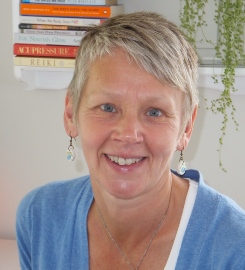There are many internal and external resources we can draw on in service of the life we want to lead. Here are four skills that are useful to draw on to build strong and collaborative relationships. So much is possible in relationships built from these foundations. The skills of Requesting, Asking Permission, Clearing and ‘I’ Statements are powerful ones in service of action, safety, presence and personal power. Curious? Let’s explore…
Requesting
Making a request is a powerful skill. When a request is made, action often happens, and relationships deepen and become more collaborative. The language of a request draws a line, and makes it clear that this is important. A request begins with, ‘Will you…?’ It can include a specified action and date and time, e.g. for completion.
When we make a request there are three possible responses: yes, no, or a counteroffer. A counteroffer is, ‘Well I won’t do that and I will do this.’
Complaints are often uncommunicated requests. Here’s an exercise: Make a list of 15 complaints in your life – things that just aren’t going away. Compose a request that addresses each complaint. Make your request to a specific person, someone who has the power and ability to do something about your request. Follow through and make the request.
What did you learn?
Asking Permission
Asking permission invites a container of safety and encourages who ever we are communicating with to look deeper than the surface details of the presenting issue. Asking permission demonstrates that each individual in the relationship has power, and responsibility. It also is a sign of respect for another individual’s boundaries, and is a particularly useful skill when addressing something intimate or uncomfortable.
Think of a relationship in your life in which you want to communicate something important, and know the other person feels vulnerable. Practise asking permission, e.g. Can I tell you what I see about the way you have been handling this? May I share my perspective on this? Are you willing to listen?
What did you notice?
Clearing
Clearing is the valuable skill of venting in order to become present and open to the connection of an interaction. Active venting allows a situation to be temporarily cleared out of the way. When we are preoccupied it gets in the way of us having constructive and life-affirming conversations. You might be annoyed, blocked, upset or agitated. You might notice that the person you are wanting to connect with seems constrained, distant or cross. Clearing allows the emotionality of the situation to be vented.
Train someone in the skill of clearing. Then choose an area of your life where you need to clear, and process the clearing exercise with your partner. Talk with them about the experience. Change roles and allow your partner the opportunity of clearing.
What happened to the ‘charge’ when you gave yourself permission to express it completely?
What was possible once the ‘charge’ was cleared?
‘I’ Statements
‘I’ Statements give us more power in our personal responses. They are useful to break patterns that do not work for us, choose responses and communicate effectively. They focus on the outcome. They are a way of expressing feelings assertively and not aggressively. They are a way of staying in the neo-cortex, our thinking brain, and not getting trapped by the amygdala, our reactive brain.
‘I’ statements work in the following way:
- You state the behaviour you find difficult.
- You state the effect it is having on you or from your perspective.
- You state how you are feeling.
- You state what you need.
Or, put simply:
I…………………………….(feeling)
when you………………….(specific behaviour)
because……………………(how it affects me)
For example, ‘I feel frustrated when you interrupt because then I am not able to finish what I want to say.’
Practise using ‘I’ statements.
How is it different from the usual way you respond?
What is the impact in your relationships?
Article posted on 8 March 2013

Sally Forman
Sally is a Certified Hakomi Therapist, Psychotherapist, Professional Certified Coach and Speaking Circles Facilitator, in private practice in Central Otago.


